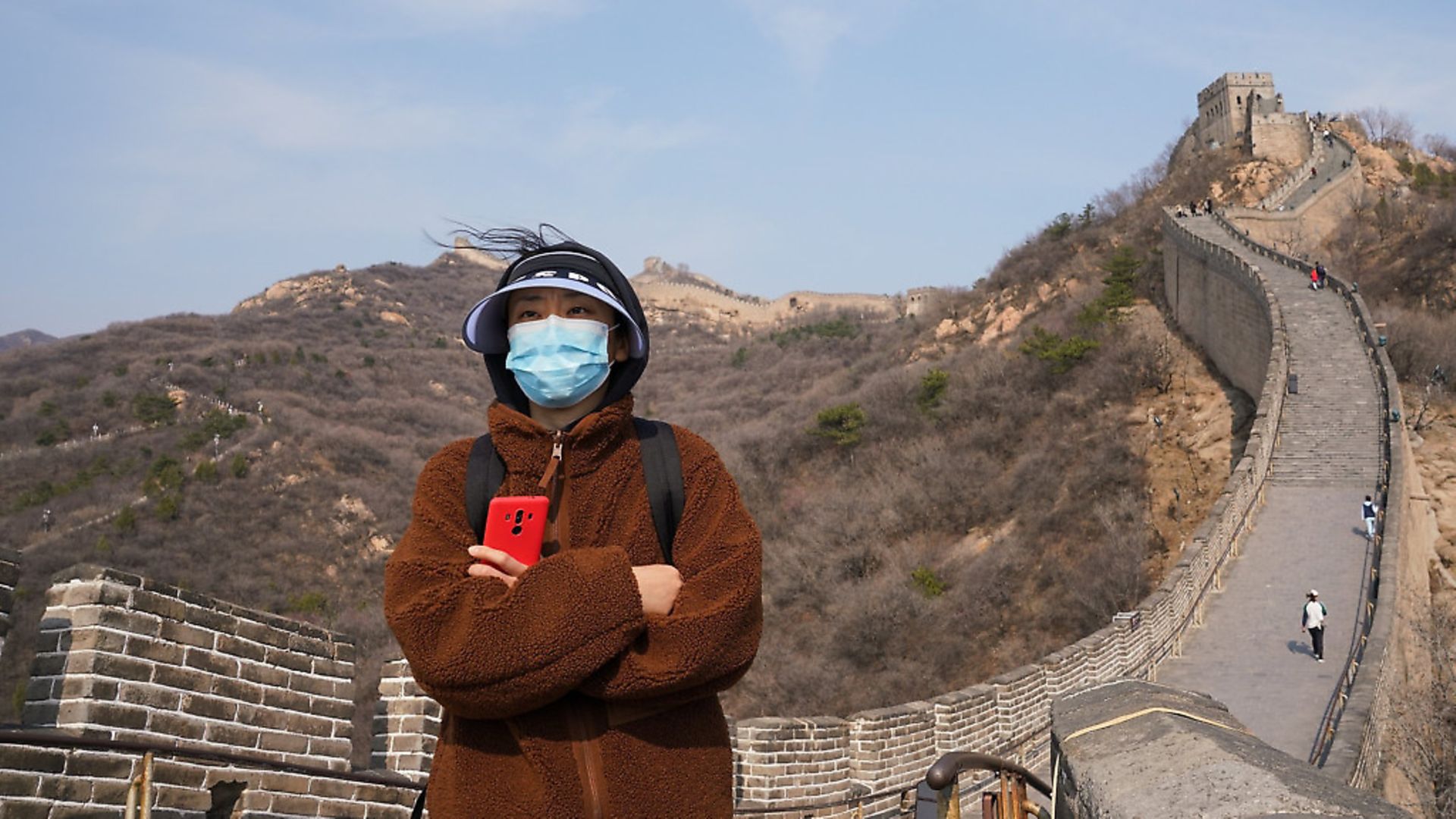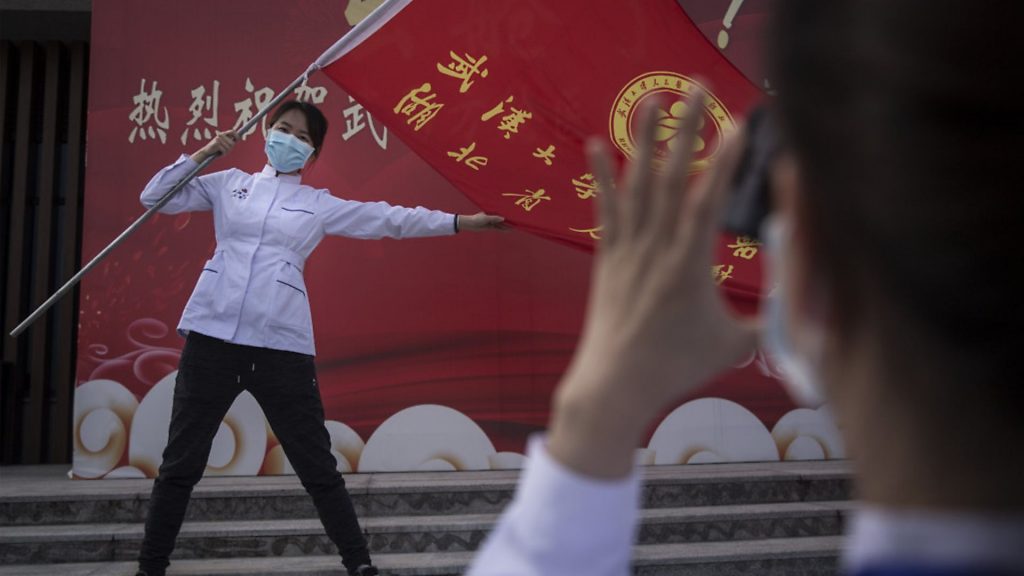
How should we view the Chinese government’s role in the pandemic – leader in the fight against it, or the reckless instigator?

During the grim days of this coronavirus pandemic, it’s understandable that people cling to anything that sounds like good news. The announcement that China was sending medics and supplies to support Italy certainly seemed to fit into this category.
Here was a global response at last. A country offering assistance to another in need, having come through a similarly traumatic experience.
Yet, whilst the equipment will certainly provide vital help, China’s offer is not completely altruistic and prompts profound questions about the country’s role in this pandemic, and its response.
China has stopped the first wave of coronavirus infections in its territory. But its mishandling of the initial outbreak was fundamental to the global spread of the virus.

Both the initial failure and subsequent success of China in tackling coronavirus can be attributed to the nature of its authoritarian regime.
Beijing is now shamelessly seeking international political advantage by touting the superiority of its governance system in dealing with the pandemic, which it is contrasting to the shambolic efforts of some Western democratic governments.
In fact, several more open Asian countries have handled the crisis better than the Chinese. Even so, the impressions of Asian dynamism and Western decay that are being reinforced could benefit China in ways which could have a profound long-term geopolitical impact.
China bungled its early response to coronavirus. The first known cases were discovered during December 2019 in Wuhan, the capital of Hubei province, which has a population of 11 million and is a major transport hub.

The immediate instinct of Chinese officials was to hide the existence of the outbreak. Their first public acknowledgement of the problem did not come until December 31, when they informed the World Health Organisation (WHO) about a new form of pneumonia that was not responding to the usual treatments.
Even then, the Chinese government still sought to downplay the situation by describing the disease as ‘preventable and controllable’.
During these early weeks of the epidemic, Wuhan’s hospitals were overwhelmed. Medical workers lacked basic supplies and protective equipment.
There were few testing kits available and a shortage of hospital beds. Many untested but infected patients were sent home, causing the virus to spread more rapidly.

The Chinese government’s repeated changes to its counting methodology make it difficult to verify the figures but it is clear many hundreds of people died in Hubei province during this period.
Attempts by brave individuals to raise the alarm were suppressed. Doctor Li Wenliang was one of the first to recognise the danger.
After sharing his concerns publicly, he was cautioned by the police in Wuhan on January 3 for starting ‘illegal rumours’ and ‘spreading false comments on the internet’.
Dr Li, a previously fit and healthy 33-year-old, died on February 7 of the coronavirus he contracted whilst treating multiple patients without adequate protection.
The consequences of China’s disastrous response during the first weeks of the outbreak were that an estimated (using data from mobile phone tracking obtained by the New York Times) seven million people left Wuhan or transited through the city during the first two weeks of January, heading elsewhere in China and to multiple international destinations.
As Howard Markel, a public health researcher at the University of Michigan told the scientific journal Nature, ‘the delay of China to act is probably responsible for this world event’.
Research by the WorldPop programme based at the University of Southampton shows that if ‘non-pharmaceutical interventions’ (such as early detection of infection, isolation, travel restrictions and contact tracing) had been implemented one, two or three weeks earlier, then coronavirus cases in China could have been reduced by 66%, 86% and 95% respectively.
The reasons for China’s initial failure are familiar to observers of authoritarian regimes.
Such regimes are pervaded by a culture of secrecy and incentivise the suppression of unwelcome information.
Lower level officials avoid passing bad news to their superiors because they fear being scapegoated and punished whenever problems arise.
The flipside of China’s unusually efficient authoritarian system can be seen in its response once the existence of the coronavirus crisis could no longer be denied.
From mid-January, it was able to mobilise huge resources and implement repressive social control measures with remarkable speed and effectiveness.
On March 19, China reported its first day with no new local infections (34 new cases were still detected in people who had arrived from elsewhere). While all Chinese government statistics need to be treated with some scepticism, the WHO and other independent bodies have recognised China’s genuine achievements in arresting the further spread of the virus.
Movement in and out of Wuhan and 15 other cities in Hubei – home to more than 60 million people – was stopped. Trains were halted, planes were grounded and roads were blocked.
The lockdown was quickly expanded to many other parts of China, with approximately 760 million people, half of the country’s population, instructed to stay at home except for short trips to buy food or seek medical help.
The restrictions were enforced using the Chinese police state’s extensive capacity to detect anyone attempting to leave quarantine zones via its surveillance of social networks and omnipresent facial recognition technology devices.
While these blanket restrictions were not the most important factor in China’s success, they did buy it some crucial time to deploy its other assets.
China used its immense manpower to build new hospitals in a matter of days and colossal manufacturing capacity to produce essential medical equipment.
This in turn enabled the Chinese to take the steps that really made the biggest difference: extensive testing to detect new cases early, thorough tracking of those patients’ contacts and the complete isolation of the victims from further contact with other people.
But implementing these basic epidemiology best practices does not require an authoritarian regime like China’s.
Such steps are broadly the ones successfully used by several much less repressive Asian countries to counter the spread of coronavirus.
They did so without the same draconian accompanying measures and while preventing the virus from spreading far and wide in the first place.
Taiwan is a vibrant democracy. It split from China at the end of the Chinese civil war in 1949 and is still regarded as a ‘renegade province’ by Beijing, which aggressively seeks to bring it back under its control.
Even so, the trade and tourism links between China and Taiwan are substantial. More than a million Taiwanese live or work in mainland China and 2.7 million Chinese citizens visited the island of Taiwan in 2019.
These extensive connections compelled Taiwan to impose travel restrictions. Crucially, it did so early. It started screening passengers from Wuhan at the first hint of a possible problem in December and by January 26 it had stopped almost all Chinese citizens from entering the country.
Taiwan then put to work the strong institutions it has built to counter epidemics, drawing upon the lessons of previous outbreaks such as SARS and H1N1.
These included releasing the stockpiles it had set up of basic essentials such as surgical masks, opening dedicated testing facilities and activating its pool of doctors trained to respond to pandemics. Taiwan is using its high-tech IT systems, including coordinated immigration and health department databases, to identify at risk individuals, test them, trace their contacts and quarantine those infected.
Despite its proximity to China and plentiful contacts with it, Taiwan currently sits way down in 50th place on the list of countries with confirmed coronavirus cases worldwide.
Similar stories, with specific local variations, can be told by other Asian countries from South Korea to Singapore.
Despite China’s mixed record in handling the coronavirus pandemic in comparison with more open Asian societies, it is still trumpeting its successes as proof of the superiority of its governing system to Western liberal democracy.
This shameless propaganda may partly be an attempt to distract attention from its initial failure to deal with the outbreak.
But some of China’s claims will resonate. China’s Asian neighbours understand its blustering better than most and, to some extent, fear its rise.
But they also see common factors in their successes in countering coronavirus. These have been achieved through their own dynamism, social structures, technology, equipment and methods.
All of these elements have largely been developed with far less Western input than has been the case for most of the past two centuries.
Not for the first time in recent years, when Asians look west they now see the inadequate governments of major nations like the UK and US and the stumbling inability of our societies to respond collectively to a crisis. The sense of Western decay is inescapable. China’s medical assistance to Italy – while in part well-intentioned and undoubtedly helpful – is certainly also a gesture designed with those public diplomacy objectives in mind.
It is still, of course, too early in the coronavirus crisis to draw definitive conclusions. The danger that renewed waves of the virus will hit Asian countries remains.
China is perhaps the most at risk because of the way its initial delay allowed the wide geographic spread of the virus.
Many international experts suspect that China’s official figure of 81,000 confirmed cases is a substantial underestimate.
This figure reflects the lack of testing during the first phase of the epidemic and does not include the likely many untraced cases of those with less severe symptoms who have not received medical attention.
A resurgence in infections could follow the lifting of the mass lockdown that helped to bring the epidemic under control.
Even so, an impression has already been growing for some time around the world, of dynamic Asian nations who are able to get big things done, unlike the fading West. For all of China’s failings and culpability, the coronavirus pandemic could mark a leap forward in the creeping global power shift to the East, unless the West can find a way to change course soon.
Warning: Illegal string offset 'link_id' in /mnt/storage/stage/www/wp-includes/bookmark.php on line 357
Notice: Trying to get property 'link_id' of non-object in /mnt/storage/stage/www/wp-includes/bookmark.php on line 37






